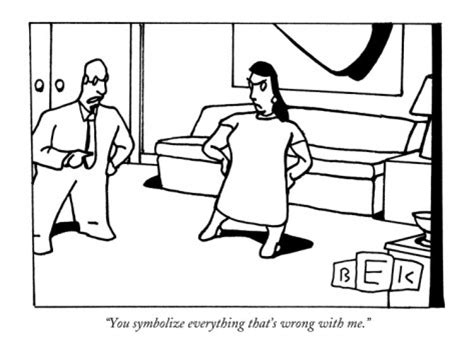A Quote by Bruce Eric Kaplan
In television writing, you want to hear what the characters say as opposed to giving them something to say. It's the same with the cartoons.
Related Quotes
I get a lot of e-mail messages from people who say thanks for giving them a place to vent, an outlet to say what they can't say in real life with friends and work colleagues - things that they know are wrong, but they still want to say. Is it right? No, of course not. People say some disgusting, vile things.
Something I always tell students is, when you're writing something, you want to write the first draft and you want it to come out easily in the beginning. If you're afraid to say what you really have to say, you stammer. [...] You're judging yourself, you know, thinking about your listener. You're not thinking about what you're saying. And that same thing happens when you write.
And I watch my words from a long way off. They are more yours than mine. They climb on my old suffering like ivy. It climbs the same way on damp walls. You are to blame for this cruel sport. They are fleeing from my dark lair. You fill everything, you fill everything. Before you they peopled the solitude that you occupy, and they are more used to my sadness than you are. Now I want them to say what I want to say to you to make you hear as I want you to hear me.
When I write fiction, I have the illusion of being able to control these fictional worlds and these characters, and to make them say what I want them to say. Of course, the problem is that it is an illusion, and by the end of it you realize that you're not in control of it at all; the characters have taken over, and they're driving the vehicle.
Thoughts are created in the act of writing. [It is a myth that] you must have something to say in order to write. Reality: You often need to write in order to have anything to say. Thought comes with writing, and writing may never come if it is postponed until we are satisfied that we have something to say...The assertion of write first, see what you had to say later applies to all manifestations of written language, to letters...as well as to diaries and journals
Between what I think, what I want to say, what I believe I say, what I say, what you want to hear, what you believe to hear, what you hear, what you want to understand, what you think you understand, what you understand...They are ten possibilities that we might have some problem communicating. But let's try anyway...
Just the fact that there's motion and sound, took me a long time on Walking Dead to get used to the fact that in television, characters don't have to say things. In comics, people have to say I feel this way, or I want to do this, and you can do so much with gesture and movement and facial expressions that you can do sometimes facial expression stuff in comics, but you can do so more if somebody can move around without actually speaking. That leads to a different style of writing between the two mediums.
It’s the ability to bring events and characters to a resolution that draws me to writing, especially writing for children. I don’t want to ever be didactic, but if there’s something I do want to say, it’s that you can bring things around. You can make a change. Adult novels are about letting go. Children’s novels are about getting a grip.


































